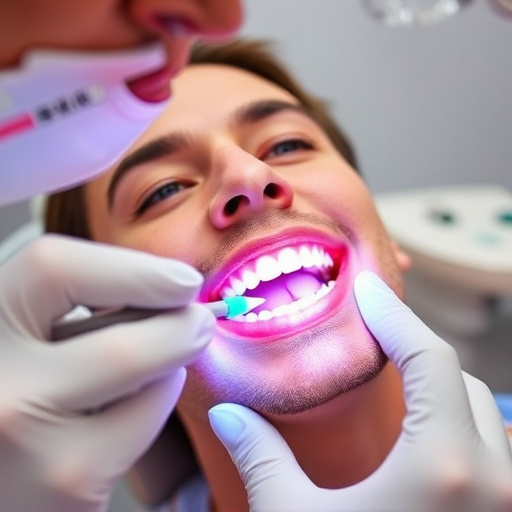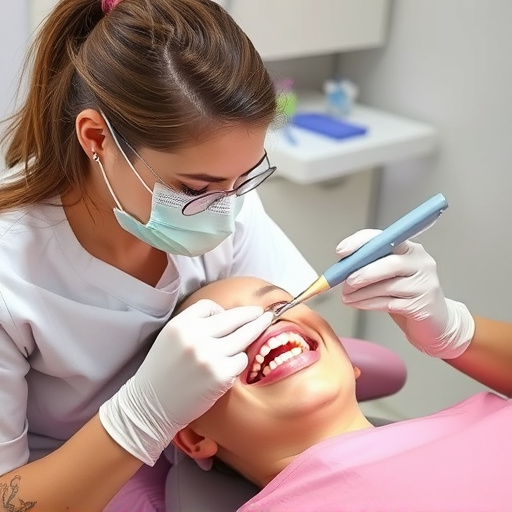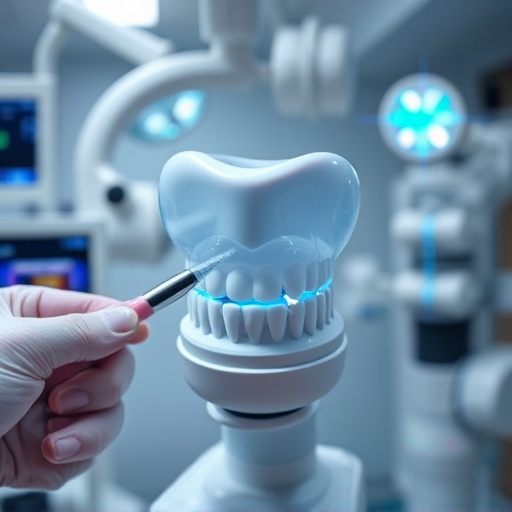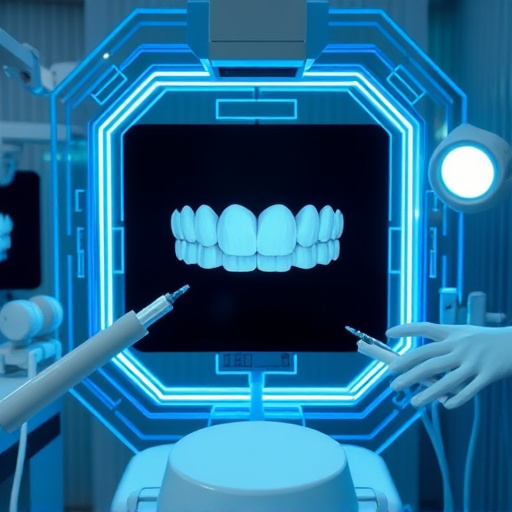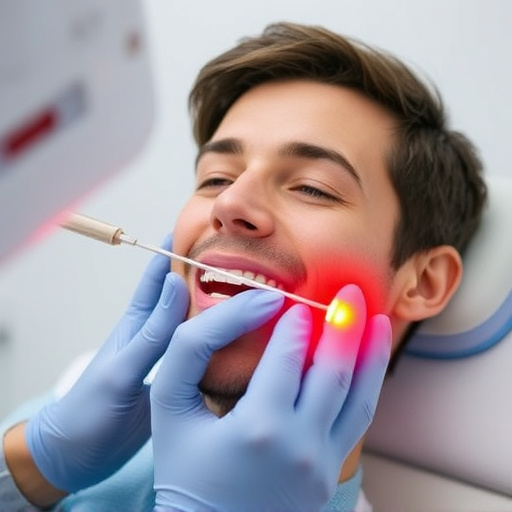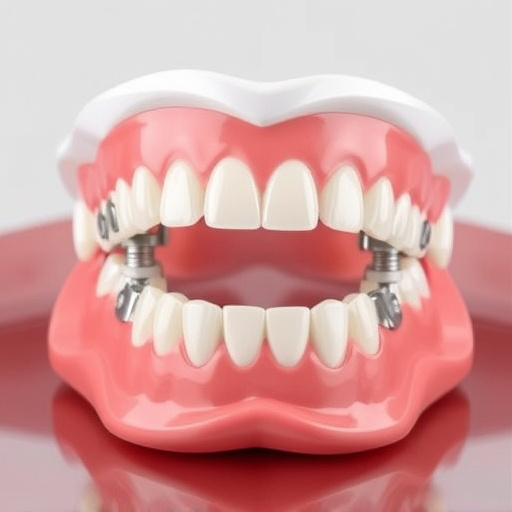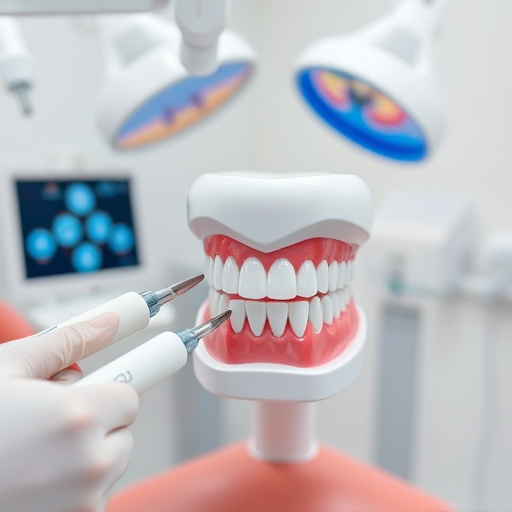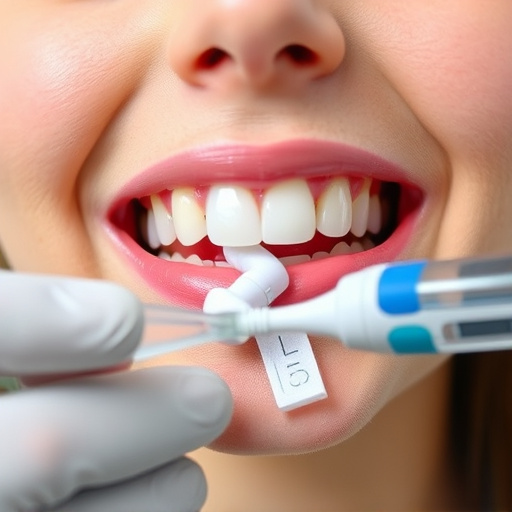Antibiotic therapy treatment is a powerful tool against bacterial infections, aiming to eliminate pathogens, ease symptoms, and prevent complications. However, it requires careful management due to the risk of antibiotic resistance and potential side effects. Regular monitoring during therapy is crucial for optimal outcomes, including follow-up appointments to assess health, manage adverse reactions, and adjust treatments as needed. Preventive dentistry practices, like routine cleanings, complement antibiotic therapy by reducing oral bacterial loads, thereby supporting systemic infection control. Effective management involves patient education on adherence, with regular dental check-ups post-treatment to monitor oral health and prevent future issues.
Antibiotic therapy treatment is a powerful tool in combating bacterial infections, but its effective utilization hinges on meticulous monitoring and follow-up. This comprehensive guide explores the critical components of successful antibiotic therapy. We delve into the purpose, potential risks, and the pivotal role of monitoring in ensuring optimal outcomes. Additionally, we emphasize the significance of follow-up care in preventing complications and fostering positive patient outcomes.
- Understanding Antibiotic Therapy: Its Purpose and Potential Risks
- The Role of Monitoring in Effective Antibiotic Treatment
- Follow-Up Care: Ensuring Positive Outcomes and Preventing Complications
Understanding Antibiotic Therapy: Its Purpose and Potential Risks

Antibiotic therapy treatment is a powerful tool in combating bacterial infections, but it requires careful understanding and monitoring. Its primary purpose is to eliminate harmful bacteria from the body, preventing further complications and promoting healing. Antibiotics work by interfering with the growth or replication of bacteria, thereby reducing inflammation and infection symptoms. However, this process also carries potential risks. Unnecessary or inappropriate use can lead to antibiotic resistance, where bacteria develop immunity, making future treatments less effective. Moreover, side effects such as nausea, diarrhea, and allergic reactions may occur, especially with prolonged courses.
Regular monitoring during antibiotic therapy is crucial. Patients should attend follow-up appointments to ensure the treatment is working as intended and to report any adverse effects promptly. Preventive dentistry practices, including regular teeth cleaning, can further mitigate risks by minimizing bacterial load in the mouth, which could otherwise contribute to systemic infections. Restorative dentistry procedures also play a role in maintaining oral health, eliminating sources of infection, and supporting overall antibiotic therapy treatment effectiveness.
The Role of Monitoring in Effective Antibiotic Treatment
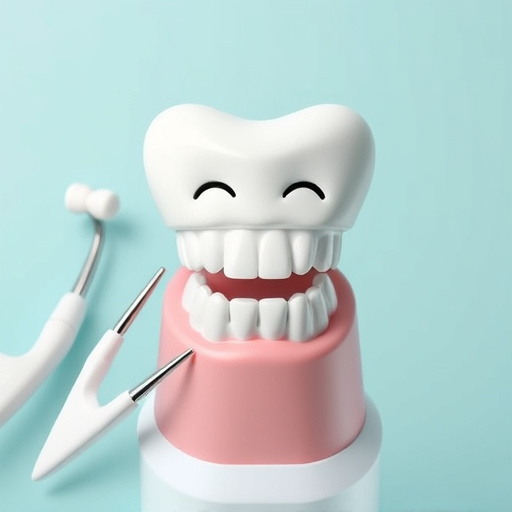
Effective antibiotic therapy treatment requires diligent monitoring to ensure optimal patient outcomes. Regular check-ins and assessments are crucial in managing potential side effects, tracking the patient’s overall health, and gauging the progress of the treatment. Through this process, healthcare providers can make informed adjustments to the course of medication, ensuring the antibiotics remain effective against the infecting microorganism. Monitoring also plays a vital role in identifying any adverse reactions early on, allowing for prompt intervention and mitigating risks associated with antibiotic use.
Moreover, monitoring provides an opportunity to educate patients about proper medication adherence, including the importance of completing the full course as prescribed. This is particularly relevant when considering procedures like teeth cleaning or wisdom tooth removal, where post-operative care and antibiotic regimens are essential components of successful treatment in family dentistry settings. Regular follow-ups reinforce the patient’s understanding of their health status and encourage open communication between patients and their healthcare providers.
Follow-Up Care: Ensuring Positive Outcomes and Preventing Complications
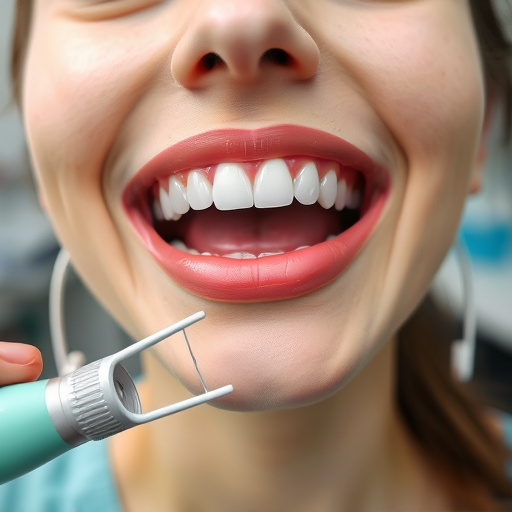
Follow-up care is an integral part of effective antibiotic therapy treatment, as it plays a crucial role in ensuring positive outcomes and preventing potential complications. After completing the initial course of antibiotics, patients should schedule regular dental cleanings and check-ups to monitor their oral health. These visits are essential as they allow dentists to assess the success of the antibiotic therapy and identify any lingering issues or signs of infection.
During these follow-up appointments, besides examining teeth for signs of improvement, such as reduced inflammation or healed gums, dentists may also provide additional tooth repair services if necessary. Regular teeth cleaning during this period helps maintain optimal oral hygiene, further reducing the risk of complications that could arise from untreated infections.
Antibiotic therapy treatment, while crucial for combating infections, demands meticulous monitoring and follow-up care. Understanding both the purpose and potential risks is essential to ensure positive outcomes and prevent complications. Regular checks and ongoing communication with healthcare providers are vital components of effective antibiotic therapy, ultimately fostering a robust and successful treatment regimen.







